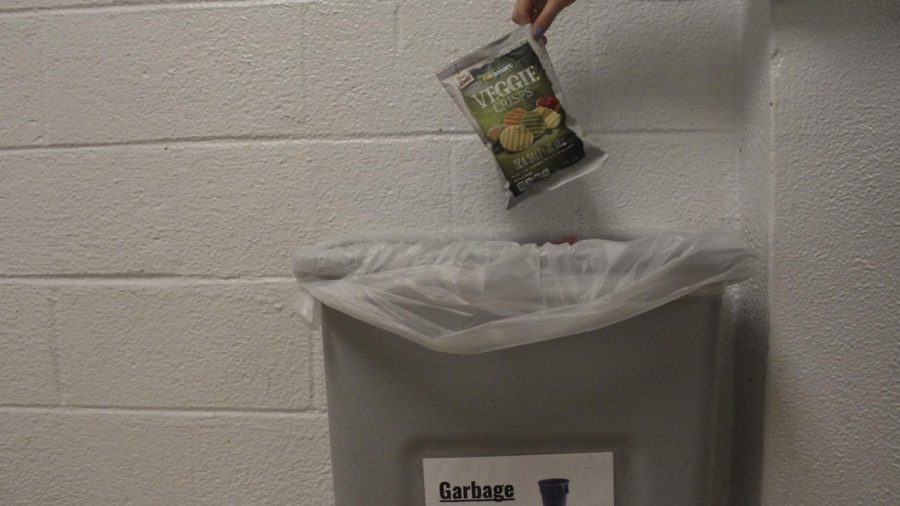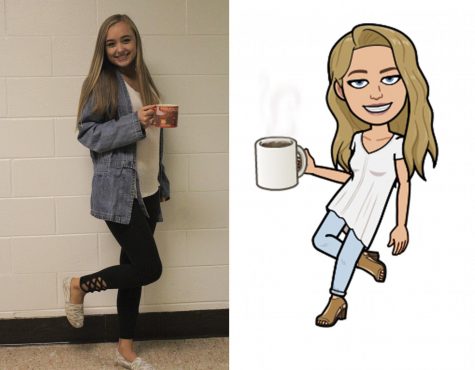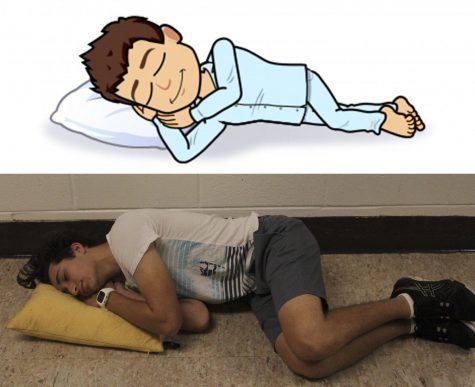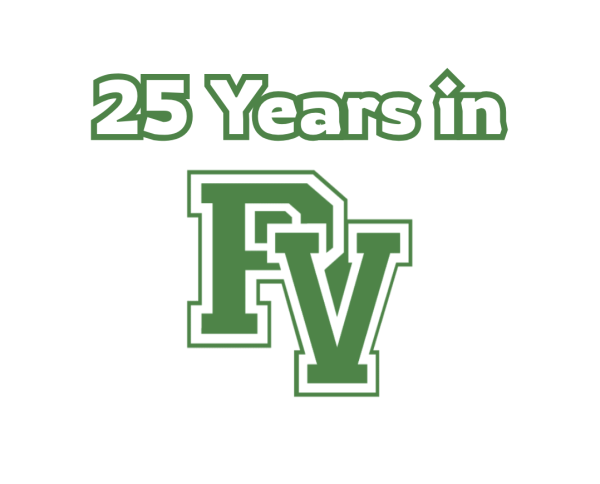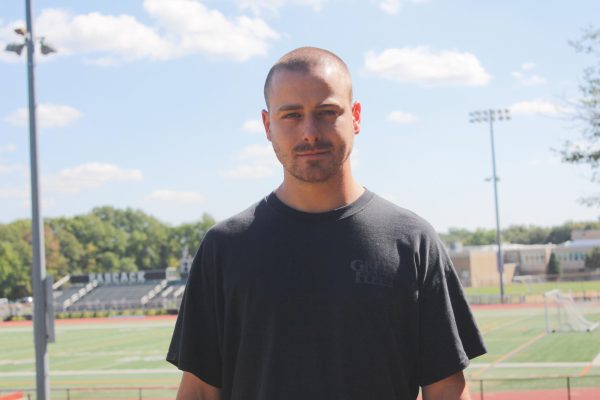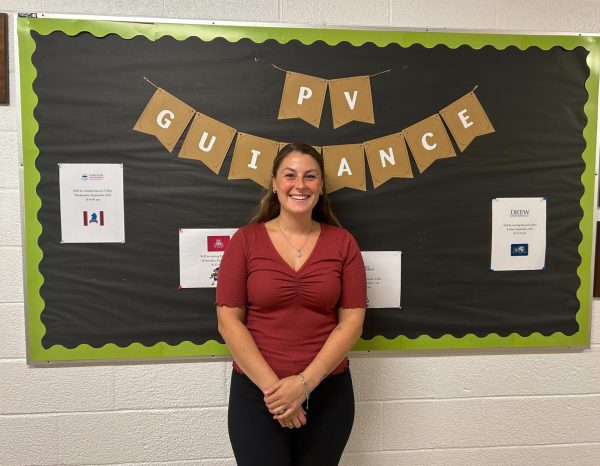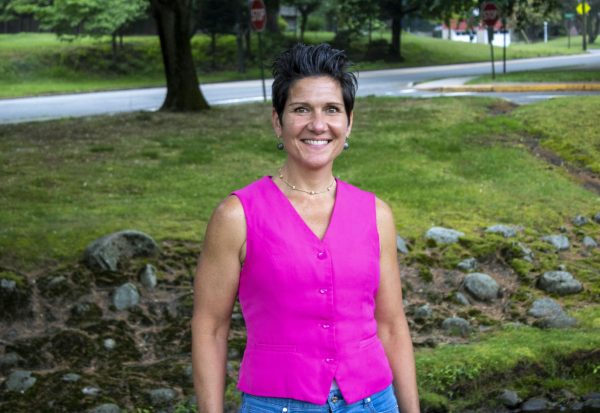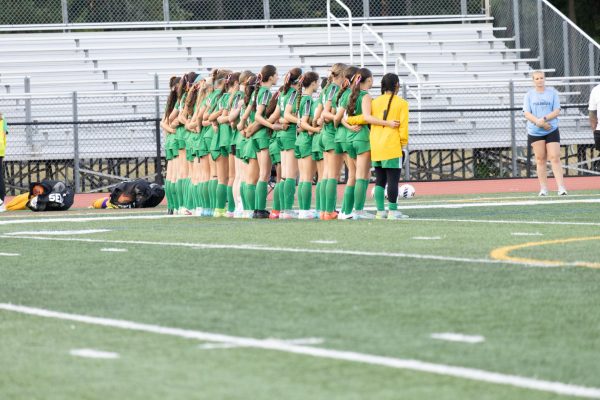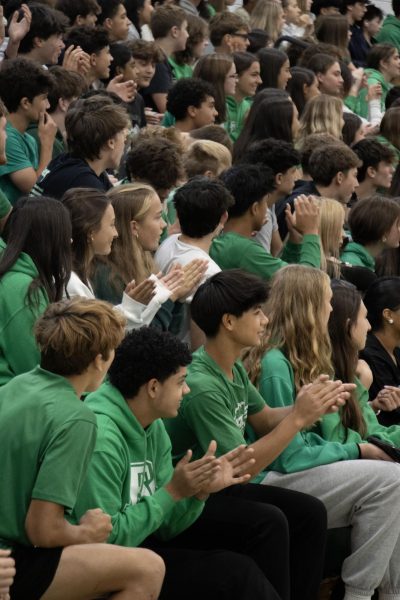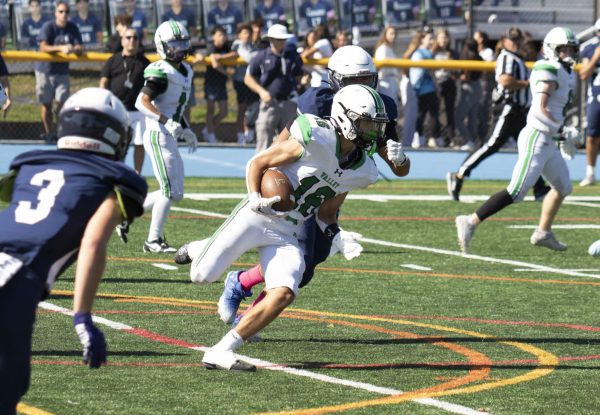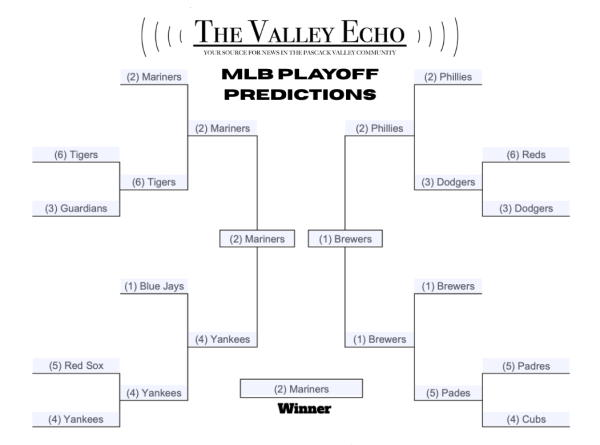PV signs new contract, changes recycling procedures
New contract with Interstate Waste Services allows PV to receive tonnage reports
The Environmental Club is raising awareness about recycling now that PV recycles for the 2018/2019 school year.
Pascack Valley’s recycling efforts are being revived and altered for the 2018-2019 calendar year.
In previous school years, PV had a garbage and recycling pickup service, Miele, that mixed the two and then proceeded to separate them at their own transfer station. According to Dan O’Rourke at the Hillsdale Department of Public Works, the items would actually belong in the dumpster. Therefore, items that could have been recycled end up in landfills.
For instance, many people think that while a dirty pizza box is often considered recyclable cardboard, it actually belongs in the trash, O’Rourke said.
“The grease off the food that gets in the cardboard makes it not reusable,” he said. “You have to throw that in the garbage. Same thing goes for a plastic bottle with any type of fluid in it.”
Miele was bought by Interstate Waste Services this year. Interstate is now the company that serves the school.
The new contract was made over the 2018 summer months, and it states that all recyclables can be comingled for pickup. In other words, paper, plastic, bottles, and cardboard can all be mixed. The recycling is picked up twice a week, on Tuesdays and Thursdays. The trucks pick them up from two dumpsters outside the cafeteria and two outside the loading dock outside the custodial offices.
Business Administrator for the Board, Pamela Baxley, said the district now receives what is called a tonnage report, which gives information on what was picked up and whether it was single stream recycling or commingled. It also details the types of garbage that we have, how much is picked up, how many tons out of dumpsters, and where that garbage and/or recycling is delivered to.
“Based on that, it is kind of a way to check up on them and make sure they are doing what they should be doing,” Baxley said.
Baxley said Miele’s weekly reports had not been detailed enough, and the company’s efforts had “fallen through the cracks.” She was not satisfied with the service they were getting.
The contract states that it only lasted until Dec. 31, but she also said that they will sign a new contract with a three-year agreement. While significantly more expensive than Miele was, Interstate was the lowest bidder for our school. It is a New Jersey Public School law that they accept the lowest bidder for a service.
Interstate’s high cost actually is the result of China not buying recyclable items from American companies anymore. China recently launched an initiative called Blue Sky 18, which means the country can no longer accept recycling unless it is 99.5% contamination free which rejects most of recycling.
“Instead of these garbage companies making money on the recycling selling it to somebody, now they can not get rid of it,” Baxley said.
PV used to recycle before its contract with Miele and Interstate. Our school tried to recycle, and it reportedly did not go well according to Sharon Knichel, the Business and Grounds Coordinator.
“I used to work as a cafeteria aid. The problem with recycling is that the kids don’t do it,” Knichel said. “You have to teach the kids, that’s the hardest thing.”
Since trash cans have a bigger opening to throw its contents in, Knichel thinks that students simply like to throw their recyclables in the more convenient bin.
Baxley said the change in companies happened because of Interstate’s buyout of Miele, but the district was also looking to change its pickup procedure. She added that their actions stemmed from the Environmental Club members’ steps to prevent the intermixing of waste and recyclables.
Since the 2017-2018 school year, the club has been comparing the amount of garbage cans to recycling cans. Club members made a map of where specifically in the building there were correct bins. They discovered that there were not many recycling bins and trash bins adjacent to each other.
Recently, students made laminated signs depicting what specifically should go in each bin according to the contract with Interstate. They are found on every single trash and recycling bin in the school.
The Environmental Club also made it a priority to incentivize recycling through their recently invented recycling game at the most recent Valley Cup. This game included a type of relay-race that included throwing recyclables in their proper bins for points.
“We also do a lot of other things in terms of recycling like our toy drive and costume drive,” said Michela Piccoline, science teacher and one of the advisers of the Environmental Club. “We do try to improve the recycling culture and initiative as part of our club goals.”
Piccoline has been an adviser of the Environmental Club for five years along with science teacher Kristen Lindstrom. One of their main goals was to get to the bottom of the recycling situation at Pascack Valley.
“Why should people care [about recycling]?” Piccoline asked. “What kind of world do you want to leave your kids one day? Do you want to leave them in a garbage can or a beautiful planet?”
Eric Mathai also contributed to the investigation of this report.


